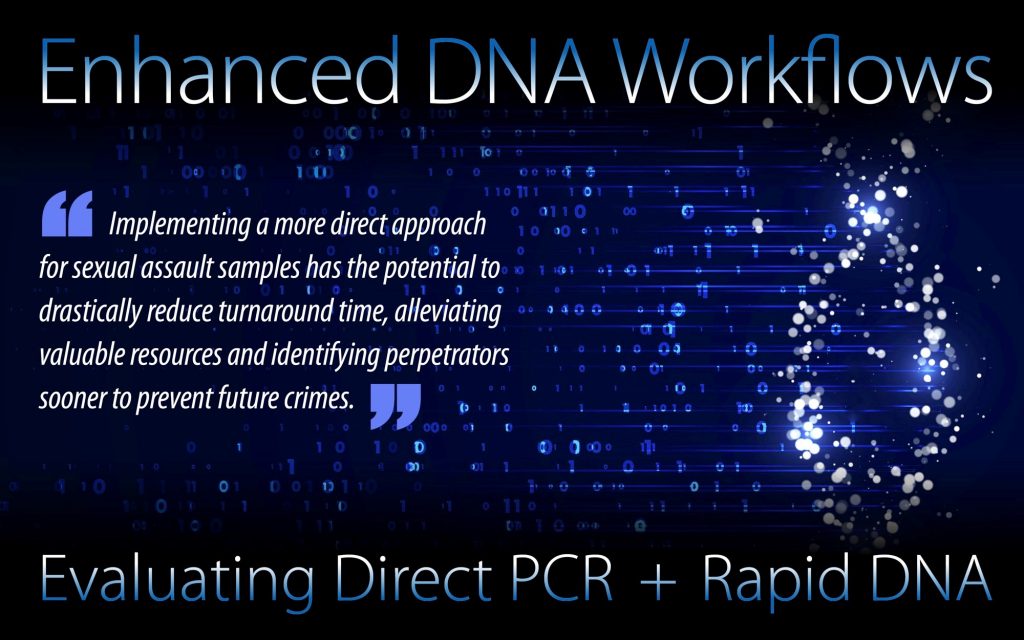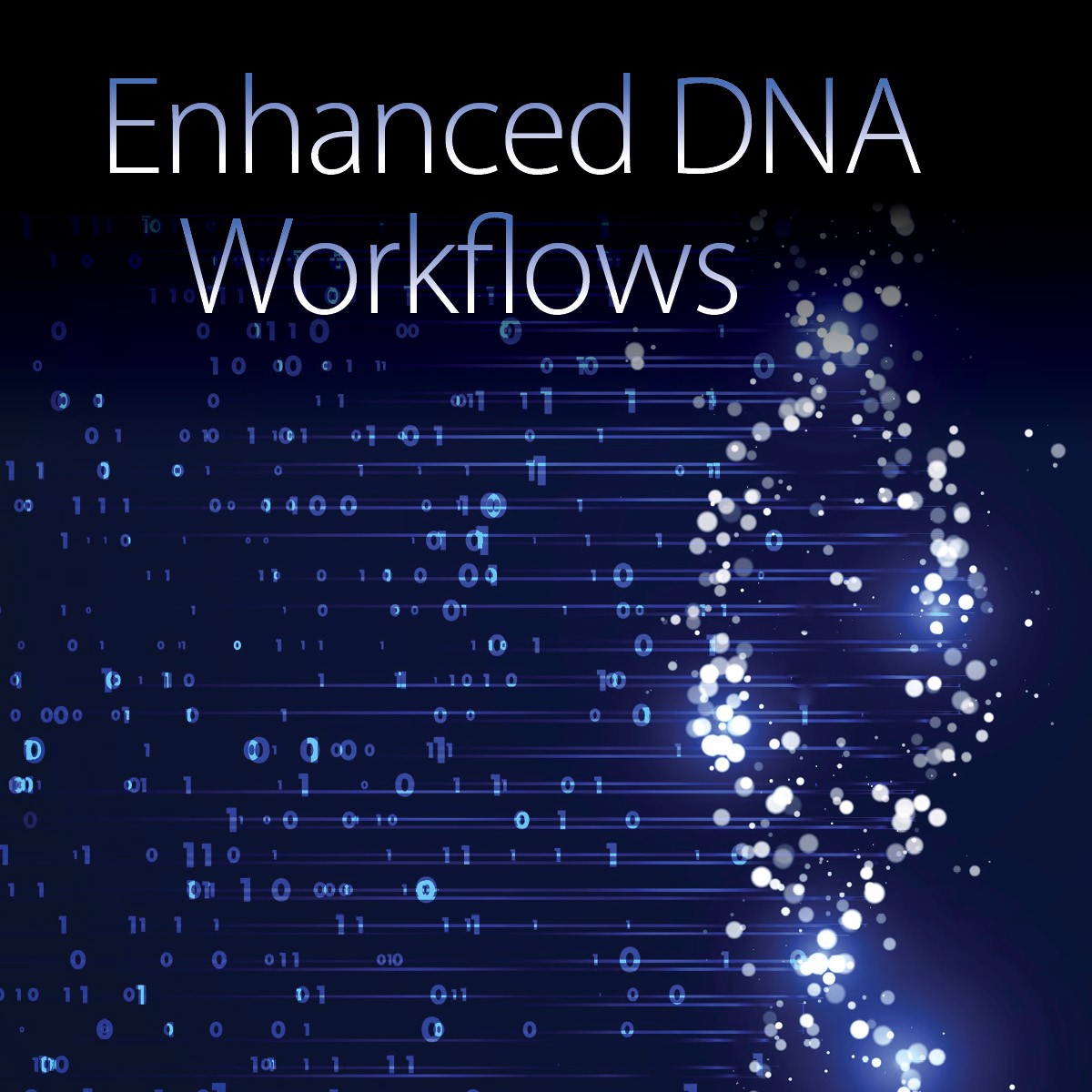
Abstract
Crime laboratories have been faced with large casework backlogs due to lengthy processing times, limited resources and scientists, and rising crime rates. Evidence related to sexual assault crimes, specifically sexual assault kits (SAKs), heavily contribute to the reported backlogs. Although more sensitive, faster chemistries and automated techniques have been implemented over the years, the traditional STR workflow remains relatively unchanged. Enhanced workflows such as Direct PCR and Rapid DNA have the potential to streamline the processing of forensic evidence items including those commonly submitted in SAKs, but the FBI QAS guidelines restrict CODIS-approved labs from implementing these methods for forensic samples. Recent studies have shown decreased turnaround times and improved or comparable profiling success with both approaches. However, review of the literature shows a lack of in-depth research comparing traditional DNA workflows to faster and more sensitive direct PCR and/or Rapid DNA approaches for evidentiary samples, especially for SAKs. By providing the forensic science and criminal justice communities with the strengths and limitations of direct PCR and Rapid DNA methods, stakeholders and policy makers may be better informed.
KEYWORDS
Forensic DNA, DNA Analysis/Testing, Sexual Assault Kits, Backlog, Direct Polymerase Chain Reaction and Direct PCR, Rapid DNA
View full paper here.
Authors: Michelle Harrela, PhD, Amy S. Holmes, PhDa
a Signature Science, LLC, Charlottesville, VA, USA

